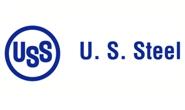Market Segment

March 8, 2018
U.S Steel to Restart Granite City Blast Furnace
Written by Sandy Williams
U.S. Steel announced it will restart one of its two blast furnaces at Granite City Works later this year. The “B” Furnace will be placed back online to support anticipated increased demand for steel in the U.S. as a result of the pending Section 232 tariffs.
“Our Granite City Works facility and employees, as well as the surrounding community, have suffered too long from the unending waves of unfairly traded steel products that have flooded U.S. markets,” said U.S. Steel President and Chief Executive Officer David B. Burritt.
“The Section 232 action announced by President Trump last week recognizes the significant threat steel imports pose to our national and economic security. The president’s strong leadership is needed to begin to level the playing field so companies like ours can compete, win and create jobs that support our employees and the communities in which we operate, as well as strengthen our national and economic security. We will continue to support our customers with the high-quality products they have come to expect from U.S. Steel.”
Approximately 500 employees will be called back, beginning this month. U.S. Steel anticipates the restart process will take up to four months. The company expects to provide information on the anticipated financial impact of the restart as more details on the president’s executive order become available for analysis in the coming days.
Key Banc analysts expect the restart to cost between $50 million and $100 million. Granite City Works has an annual raw steelmaking capability of 2.8 million net tons, or about 1.4 million tons per furnace. Production could add more than 1.0 million tons of hot rolled capacity to the U.S. market.
“We’ve worked closely and cooperatively with leadership of the United Steelworkers to develop a plan that will help us work through the restart process in the safest, most efficient manner possible, while enabling longer-term collaboration designed to improve the plant’s competitiveness,” Burritt said. “We appreciate and thank the USW leadership and membership for their passionate efforts around the Section 232 investigation, as well as in support of the restart process at Granite City Works. Together, we are committed to ensuring the steel industry remains a fundamental part of American manufacturing because American manufacturing is stronger with American-made steel.”
The Granite City blast furnaces were idled in December 2015 and the hot strip mill in January 2016 in response to challenging market conditions that included global excess steel capacity and unfairly traded imports, the company said. The hot strip mill was restarted in February 2017 to meet customer needs. Granite City’s “A” blast furnace remains idled.
The impending tariffs have many speculating on when AK Steel may restart its Ashland operations. A spokesperson for AK Steel said that although the company applauds the tariffs on imported steel “it is too early for us to make any decision about restaring operations, as we need to assess possible short- and long-term impacts.”







